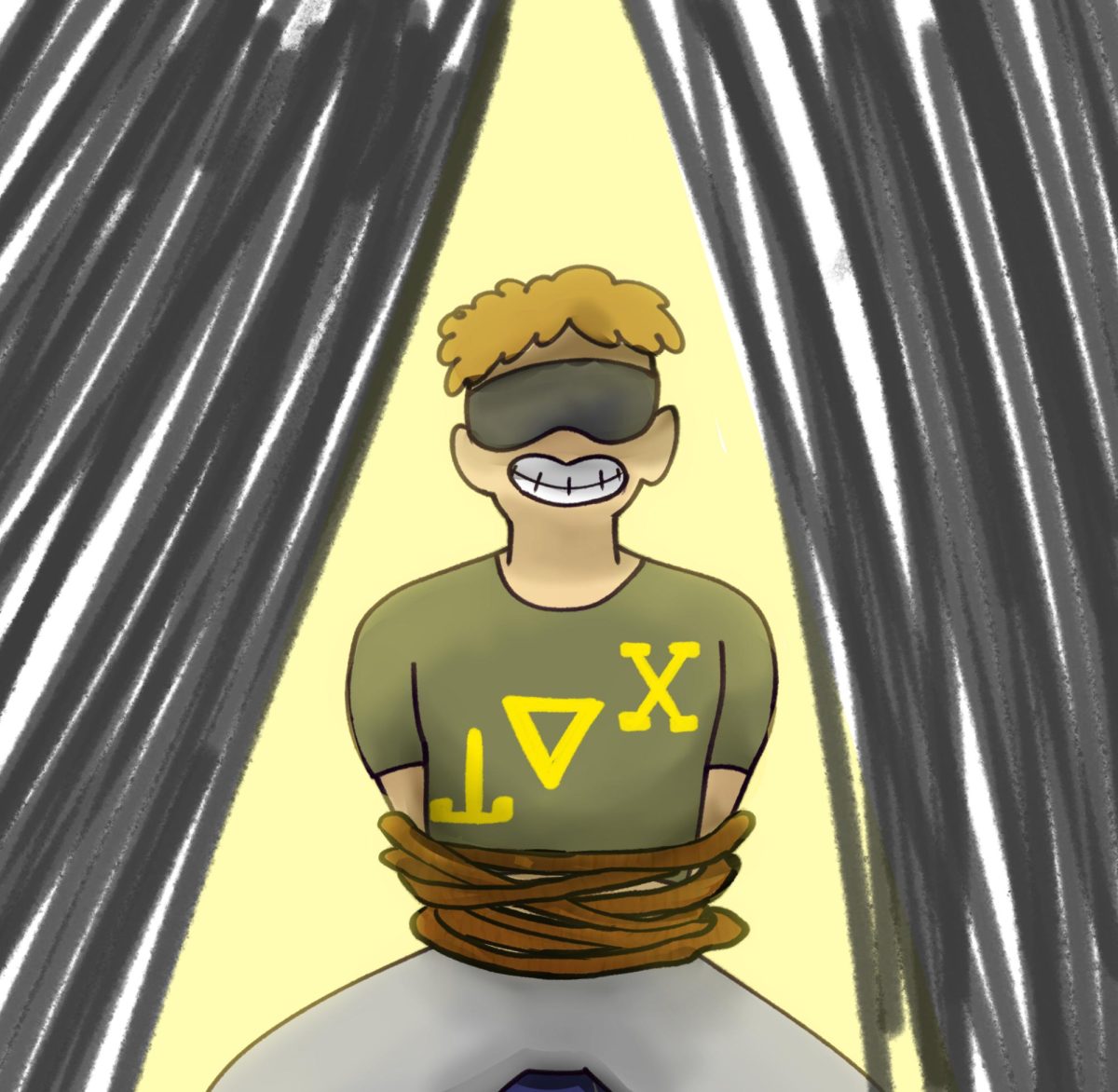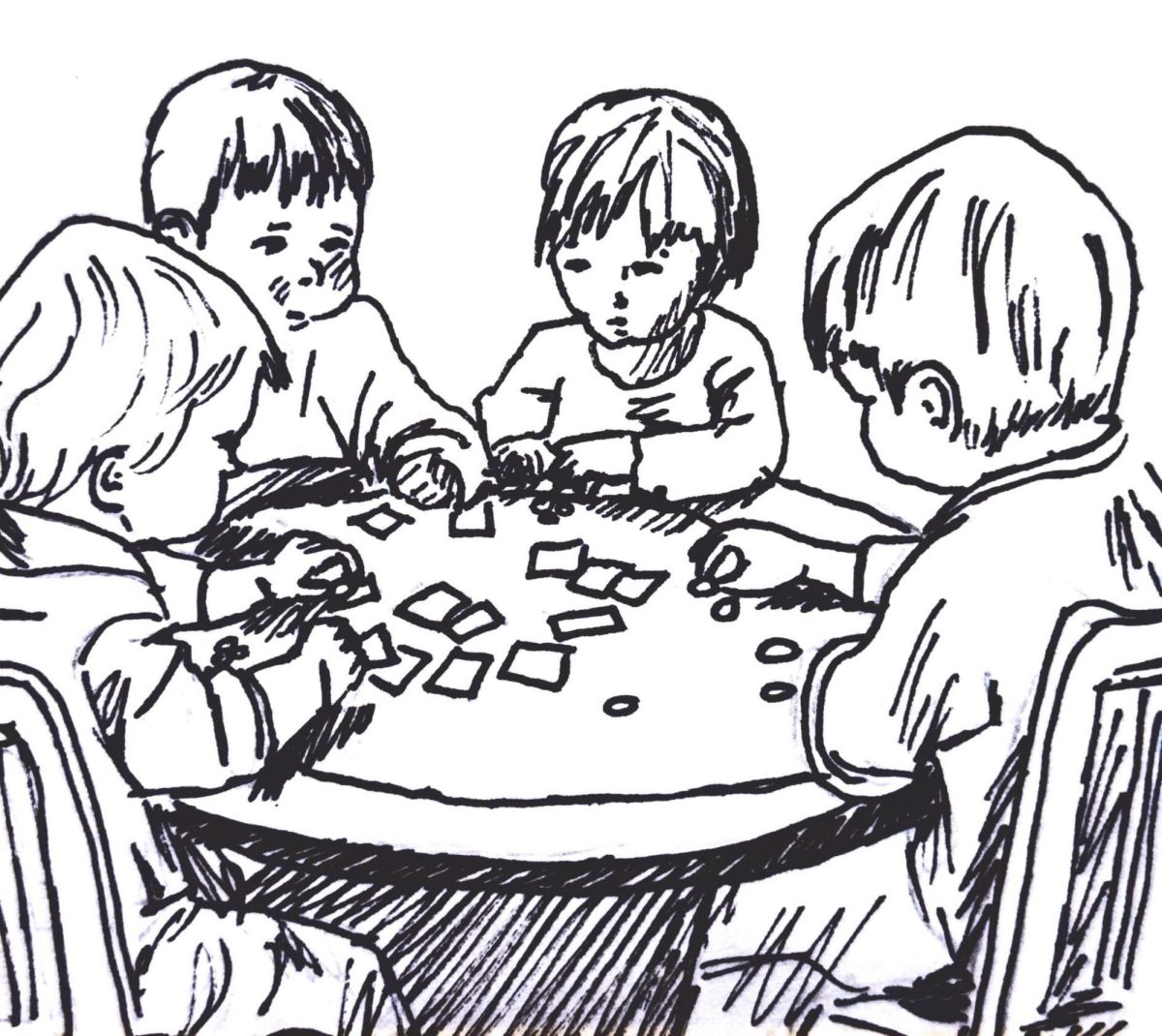You think that being a Muslim girl living in Texas would pose problems.
However for much of my life, it honestly didn’t. I grew up, seemingly like everyone at Trinity, in Houston. Houston is probably one of the most diverse cities in America, and often on weekends, my mother would drag me to Hillcroft or Sugar Land for some sort of Indian-Pakistani event. In those areas, dubbed “Little India,” store signs and adverts transitioned from English to Hindi, and white smiling models were replaced with Indian ones.
At school it was the same story. I went to an international school where being white was often the exception — I lived in this wonderful bubble of acceptance and didn’t even notice.
That bubble burst when I came to Trinity.
I was in Mabee sitting with new friends when a person I had just met that day engaged in the topic of religion with me. Without hesitation I told her I, like my family, was Muslim. She then proceeded to ask me how I felt about the Prophet Mohammed raping little girls.
It was like someone stabbed me in the heart.
Yes, Islam is complex and often twisted by others to perpetuate the marginalization of entire groups and to spread hate. But that’s not what Islam is to me. Growing up, going to Sunday school, I was taught that Islam — like Christianity — can mean different things to different people, but it should never be used to spread anything other than peace. My faith was there for me when I faced academic struggles, when my grandfather died and when I was forced to repeat a year of school due to a traumatic brain injury. To have someone say such despicable things while my new friends cautiously watched on, not saying anything, was something I had never encountered before.
I didn’t know what to do, I looked for support from the people around me and all I found was awkward silence. I then went to my room and cried. This was not just a disgusting, untrue, ignorant statement, it felt like a visceral rejection of my identity and, frankly, a complete rejection of me. In my bubble at my high school, my friends, even those who did not understand the nuance of my religion, listened as I explained what my faith meant to me.
It did not stop there. During our discussion of Islamophobia in my social justice first-year experience class, someone I considered a friend pulled out a physical copy of the Quran to quote a passage he believed to demonstrate, unequivocally, that Islam is a religion of hate and intolerance. Throughout the week I was forced to defend my religion while my entire class looked on as the same student spewed intolerance and ignorance.
That day I started my transfer application.
I eventually told my peer tutor my plans when she kindly emailed me to see how I was doing. After assuring me that things would get better with time, she advised me to talk to my FYE professors.
After doing so, I found my first allies.
Dr. Naqvi and Stacy Davidson, my wonderful professors, urged me that the best way to cope with intolerance was to listen, but to also set boundaries. They advised me that some things are absolutely unacceptable to say and I had to be clear when people crossed that line.
My incredible friends, who pulled me aside when they saw I was upset, told me that they would always be there for me and offered a support system I would come to rely on.
I am writing this because I am sick of being ashamed. I am sick of, when people ask me what religion I am, automatically downplaying my faith. I’m done with prefacing my answers with “yeah, but I’m not that religious.”
This is also, cheesily, for my parents.
It’s for my dad who got his teeth knocked out growing up in London because he was the only brown kid in military school. This is for my mother, who at seventeen years old emigrated from Pakistan to start her senior year alone. I am sick of feeling embarrassed and ashamed for something that is integral to my identity.
Whatever sets you apart, makes you different and interesting and unique, you are not alone.
Let’s start changing campus dialogue to intellectual discourse rather than conversations filled with hate and bigotry.
After all, as the cliché goes, diversity is something to be celebrated.







tab • Oct 8, 2019 at 5:56 pm
In Genesis 19:30-38 Lot’s daughters got their father drunk, and over two consecutive nights had sex with him without his knowledge. They both got pregnant.
The quote above is from the bible. When we look at Islam, lets also look at Christianity and the incest it involves.
Zachary Neeley • May 8, 2018 at 8:11 pm
Arianna,
I think a rebuttal is in order. It’s been several days since I first read your article; several days that I’ve thought about this and debated whether this was worth a public response. But since I consider you a friend and since I’ve always seen you as someone who relishes intellectual discourse, I’ve decided to craft a response to your article.
For those who don’t know, I’m the person who pulled out the Qur’an in Arianna’s FYE class and read a couple of verses from it. The reason I’m putting my name to this is because I choose to stand by what I say in front of groups of people. If you say it, own it. And that’s what I’ll do.
To preface, it isn’t bigoted to criticize a religion. It isn’t anti-Semitic to criticize Judaism. It isn’t Christophobic to criticize Christianity. And it isn’t Islamophobic to criticize Islam. I’ll come back to this later.
Now to the points I wanted to address:
1. “She then proceeded to ask me how I felt about the Prophet Mohammed raping little girls…This was not just a disgusting, untrue, ignorant statement, it felt like a visceral rejection of my identity…”
-I think this criticism is warranted. I remember you telling this exact story to our FYE class, in which I offered my support to you and said that I happened to be a critic of Islam, but I would never resort to that kind of slander. I stand by those words today. But I would argue that it might be worth your while to debunk this statement with facts. If it is, as you say, an “untrue” and “ignorant” statement, it should be easy, right?
2. “…someone I considered a friend pulled out a physical copy of the Quran to quote a passage he believed to demonstrate, unequivocally, that Islam is a religion of hate and intolerance.”
-Your framing of this incident leaves out very important information. The passage I cited was Qur’an 2:191-192, which says the following: “And kill them wherever you overtake them and expel them from wherever they have expelled you, and fitnah is worse than killing. And do not fight them at al-Masjid al-Haram until they fight you there. But if they fight you, then kill them. Such is the recompense of the disbelievers. And if they cease, then indeed, Allah is Forgiving and Merciful” (Source: http://www.quran.com).
Strongly worded, isn’t it?
I referenced this passage because it was what came to my head at that moment. There are dozens of other verses that mention violent jihad (this was one of them) that I could have cited. Aside from this, my broader point was that I was adamant on using the source material (the Qur’an, in this case) rather than citing from an unreliable source, which in my opinion, happens to often with people who criticize Islam. I do my hardest to hold myself to an academic and intellectual standard, and if you disagree, then that’s your prerogative.
And while I’m on the topic, I find it increasingly difficult to digest the whole “Islam is a religion of peace.” However, this does not translate to me thinking that all Muslims are closet jihadists and will use violence as a first resort when they encounter difficult struggles. I definitely don’t see you as that, nor do I see any of America’s three to seven million Muslims as that either. I don’t have a problem with Muslims, but you seem to think otherwise when I criticize your faith’s doctrines and the countries whose laws and political structures are derived from those same doctrines.
3. “Throughout the week I was forced to defend my religion…”
-Who forced you? Also, I don’t recall you saying much during our discussion on Islamophobia. Correct me if I’m wrong, but you didn’t say anything after I read the passage, so I don’t understand what you’re saying here.
4. “…while my entire class looked on…”
-No. Just no. First, it’s common courtesy to not interrupt someone when that person is speaking. If you were expecting the class to shout me down and call me a bigot, then that’s a big problem. I did my best to not talk over anyone else when they were speaking. Likewise, I expected the same of everyone else (recall that I made a point about this earlier in the semester), but you are more than welcome to rebut my points if you think they’re wrong, which you didn’t (again, correct me if I’m wrong).
5. “…as the same student spewed intolerance and ignorance.”
-Ignorance? Possibly. I wasn’t raised in the Islamic faith and I can only say what I’ve been taught so far about it, which I admit, probably isn’t much. Intolerant? No. I don’t think I’ve said anything that fits the definition of intolerance (in fact, other than reading the passage, I don’t recall ever saying anything else on Islam that week, but I might be wrong). Google defines intolerance as the “unwillingness to accept views, beliefs, or behavior that differ from one’s own.” I have always opened myself to discussion about Islam (hence why I’m writing this) and I’ve taken a class over Islam and am planning to take another one this fall.
6. “That day I started my transfer application.”
-Really? You can’t handle me reading a couple of verses from your holy book and criticizing them? There’s a lot of things that I can say here, but all I can say is, I’m genuinely surprised that you went and did this because I’ve always seen you as someone who pursues rather than runs away from intellectual discourse.
7. “Dr. Naqvi and Stacy Davidson…urged me…to also set boundaries.”
-Oddly enough, I did the same thing this past winter break. A friend had sent me a document titled “Islam is the cult of the beast.” In it were multiple claims that were backed up by Qur’anic verses. When I cross-referenced these verses with a legitimate translation, I found that the verses were both taken out of context and gravely misinterpreted, and I made sure my friend knew this (he didn’t react very well). I also remember that multiple people asked me to burn my copy of the Qur’an at the end of last semester, which I vehemently rejected and told them that it was a holy book and I had no intention of carrying out an act that I viewed as highly disrespectful to the 1.6 billion people who see that holy book as the literal word of God.
8. “I am writing this because I am sick of being ashamed.”
-No one is shaming you, at least not me. I prefer to criticize the belief system, the idea, the ideology, not the person. I understand that you may feel attacked when someone criticizes something so intrinsically embedded within you, but don’t take it personally. Scrutinizing a religion is the highest act of intellectual inquiry you can give toward a particular faith, and that’s exactly what I was doing when I read the passage.
9. “It’s for my dad who got his teeth knocked out growing up in London because he was the only brown kid in military school.”
-Again, I completely empathize with any physical trauma you or your family suffered in the past. I think it’s detestable that your father suffered a beating because of his skin color, and it certainly shouldn’t be happening in countries that openly preach freedom of religion and tolerance of people of other races/ethnicities.
10. “Let’s start changing campus dialogue to intellectual discourse…”
-Yes, I completely agree! Let’s avoid the ad hominems and discuss this issue in a civil manner, not one where we hurl insults and talk over each other. However, that involves accepting and respecting my point-of-view on the topic, which you have so far failed to do.
11. “…rather than conversations filled with hate and bigotry.”
-Like any other belief system, Islam is not free from scrutiny. Again, it is not bigoted to criticize Islam. I don’t hate Muslims as you seem to imply. Your reaction to my perspective can only be characterized as intolerant, which surprises me. I’ve always seen you as a person who doesn’t just hold her own in a political discussion but seeks out these discussions out of a personal quest for truth and knowledge. Behind your back, I’ve told more than one person that I admired how you approached our FYE discussions, but this article makes it harder to stand by those claims. So far, you’ve been unwilling to engage with me on the topic as evidenced by either your failure or your intentional evasion of any discussion on the topic with me. Again, I am happy to discuss this with you (or any other Muslim for that matter) if you want, but if you insist that I am a bigot that deserves to be silenced, then there is not much that can be reconciled.
I chose to type all this out because I believe that what you wrote here does not accurately reflect who I know you to be, and because I know that you’re better than this. I also would like to say that I’m grateful for you writing this article, mainly because it got me thinking again on the topic of Islam and to renew my studies of the issues that surround the faith. Again, I believe my knowledge of Islam is quite limited, and again, I am more than happy to learn more about the faith and engage in a dialogue with you. I think there is a great learning opportunity here and there’s a lot that we can learn from each other. But you must recognize that there is a danger in using -isms and -phobic words. Painting me and other critics of Islam with such a broad brushstroke, aside from being careless, risks ignoring actual bigotry, hate, and intolerance when it shows up. I will end (finally!) with a quote from Dr. Jordan Peterson: “In order to be able to think, you have to risk being offensive.”
Jeanna Balreira • Apr 25, 2018 at 6:13 pm
Beautifully written, Arianna. Thank you for sharing this with us and with the world.